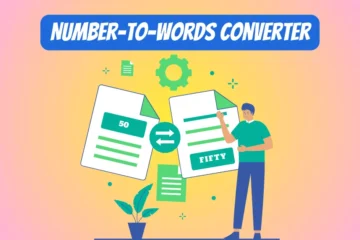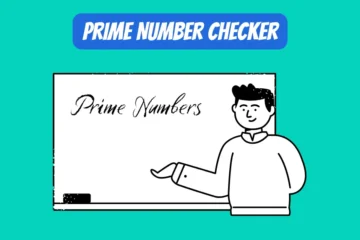Table of Contents
How to use this word counter?
- Enter Text: Click inside the text area where the placeholder says, “Enter your text here. Word counting limit is 10 Thousand.” Type or paste your text that you want to count words for.
- Count Words: After entering your text, click the “Count Words” button located below the text area.
- View Results: Once you’ve clicked the “Count Words” button, the total word count will be displayed in a dedicated area below the button. If the word count exceeds 10,000 words, a specific warning message will be displayed.
- Edit Text (Optional): If you need to modify your text and recount the words, simply make your changes inside the text area and click the “Count Words” button again.
Practical applications of word counting
While character counter focuses on individual characters, word counter concentrates on the number of words. Here are some practical applications for a word counter tool:
- Speech Writing: Word counters help in crafting speeches that fit within a given time frame, as speech delivery often adheres to a word-per-minute rate.
- Novel Writing: Many literary agents and publishers have specific word count requirements for different genres. Word counters help authors align with these guidelines.
- Educational Assignments: Teachers often set word count limits for essays and assignments. Students use word counters to meet these criteria.
- Content Pricing: Freelance writers and content agencies might price their work based on word count, making word counters a crucial tool for quoting and billing.
- Thesis and Dissertation Writing: Academic institutions may set word count limits for various sections of a thesis or dissertation, requiring precise tracking.
- SEO Optimization: SEO professionals might use word counters to ensure that content meets specific word count guidelines for optimization.
- Meeting Agenda and Minutes: In corporate settings, word counters help in crafting concise and clear meeting agendas and minutes that fit within standard templates.
- Grant Proposals: Many grants have strict word count limits for different sections of a proposal, requiring careful crafting and word counting.
- Script Writing: Scriptwriters for films, TV shows, and commercials often have word count targets to fit within runtime constraints.
- Language Learning: Language learners might use word counters to practice writing within specific word limits, improving their ability to convey thoughts succinctly.
- Textbook Writing: Educational textbook authors often adhere to word count standards for different age groups and educational levels.
- Translation Services: Translators might need to keep word count consistent when translating documents, especially for legal or formal translations.
- Subtitles and Captions: Creating subtitles and captions for videos often requires fitting words within specific time frames, making word counters essential.
- Government Documents: Many government forms and applications have specific word count restrictions for answers, requiring precise compliance.
- Podcast Scripts: Podcasters might use word counters to script episodes that fit within a desired episode length.
- Game Development: Word counters can be valuable for game developers in crafting dialogues and narratives that fit within specific scene durations or character dialogues.









